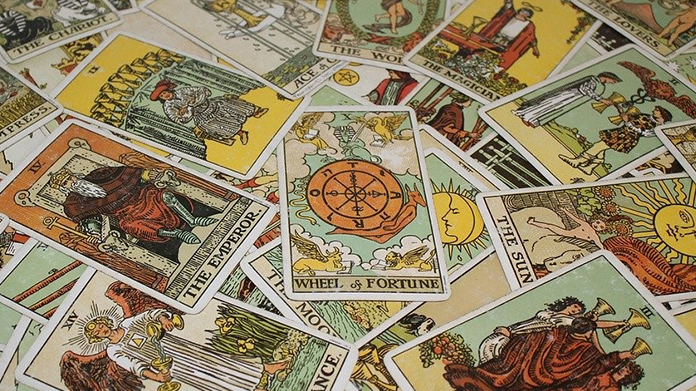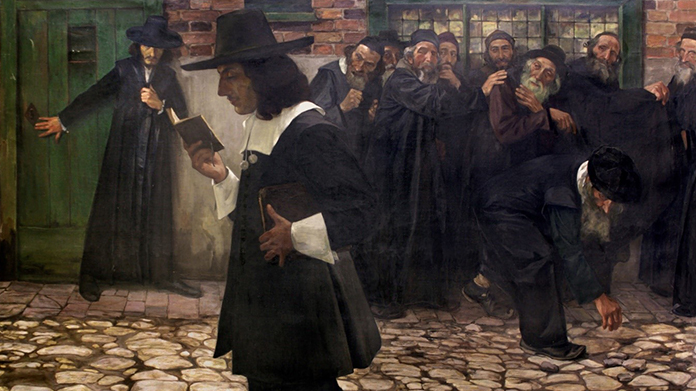Find out more about The Open University's Social Sciences courses and qualifications
If so, you are not alone. Everyday superstitions are widespread, with surveys regularly finding at least a quarter of the UK population being actively superstitious.
Often, they take the form of harmless habits. But it’s worth considering what superstitions are and how they come about. As we will see, they rely on a magical view of reality that can lead to poor decisions, misunderstanding and confusion. And historically, shared superstitions have resulted in catastrophic outcomes. Let’s take a closer look.
What is superstition?
A superstition is a belief that human affairs are influenced not by purposeful behaviour or natural causes, but by magic, chance and divine favour.
They usually involve beliefs and practises that attempt to influence events to bring about a good outcome or avoid a bad one.
They also often involve a belief in luck, a mysterious force that brings about success or adversity as a matter of chance rather than by our own efforts. Historically, luck has been represented and personified as many things – from Lady Fortuna to the Wheel of Fortune, as shown below.
 Tarot cards.
Tarot cards.
How we might influence luck is never clear. But for many of us there have been moments where we have felt particularly lucky (or unlucky).
And who would dare risk tempting fate, by say opening an umbrella indoors or putting a pair of new shoes on a table?
Indeed – superstitions assume that beneath life’s randomness is a supernatural force (or forces) that we should try not to fall foul of.
Superstition and society
Throughout human history, charms, rites and rituals have been used to attempt to retake control of life, particularly in times of distress and uncertainty.
During the COVID-19 pandemic new superstitions appeared across the world, like drinking cow wee in India, or warding off evil by displaying disembowelled monkeys in Cambodia. In the UK, conspiracy theories circulated about mobile phone 5G coverage. At least 70 arson attacks were recorded against phone masts. While bizarre and outlandish, such beliefs and practises relate to a fundamentally human need to feel a sense of control over events.
 Messages of love in the form of superstitions.
Messages of love in the form of superstitions.
To understand why people are superstitious then, let’s take a historical approach. Given that people are generally more superstitious during times of upheaval, what can we learn from thinkers living through troubled times?
Nasty, brutish and short
Europe in the 17th century was a frightening place. Plague, famine, fire and war could upend life at any moment. Fear of witches, evil spirits and the devil was widespread. Events like the Reformation had shaken faith in the spiritual order and authority of the Catholic Church, while new scientific discoveries were undermining traditional beliefs and teachings in the Bible.
In the Dutch Republic, the philosopher Baruch Spinoza was at the frontline of these changes. Throughout his short life, his philosophy tried to combine the latest developments in scientific understanding with an emphasis in using philosophy to live together harmoniously.
Despite living in a relatively liberal society, Spinoza was concerned about his safety and that of his friends to continue publishing their philosophy. As a young man, he was reportedly nearly killed in a knife-attack after being expelled from his Jewish community for his unconventional beliefs about God. His lifelong motto was caute (caution).
Hope and fear
In 1670, as Dutch society drifted towards a crisis, he set out to defend the freedom of philosophising in the anonymously published Theological-Political Treatise.
While the book makes some trailblazing arguments for democracy and free speech, it begins with the problem of superstition. ‘If men could manage all their affairs by a definite plan, or if fortune were always favourable to them,’ he writes, ‘no one would be in the grip of superstition’.
 Excommunicated Spinoza, 1907 painting by Samuel Hirszenberg.
Excommunicated Spinoza, 1907 painting by Samuel Hirszenberg.
But rarely if ever is that the case. Instead, we inevitably encounter adversity and disappointment in pursuing what we want. Then we ‘vacillate wretchedly between hope and fear’, making us gullible to belief in omens, superstitions – and the authorities who claim to have a monopoly on their power.
For while the first problem is a fundamentally human one, it’s the second that concerns Spinoza. Superstitions are harmless if we know what we are getting ourselves into. But they become deeply dangerous when they result in surrendering our economic or political power to ambitious figures who claim to act on behalf of divine forces. When, in short, we give up our natural power and estimation in thinking for ourselves.
The Leviathan
For Spinoza, problems in Dutch society stemmed from the inappropriate intervention of religious power into its politics and everyday life. Instead, religion should be a matter of personal conscience, as well as one means of teaching everyone how to live together peacefully and cooperatively.
His approach has often been compared to the English philosopher Thomas Hobbes. Both were writing in superstitious times wracked by upheaval and conflict. Both argued that religion should fall under political control, as it did in the Church of England.
 Hobbes, Leviathan frontispiece (1651).
Hobbes, Leviathan frontispiece (1651).
Hobbes argued that we should surrender all power to the monarch to control the unruly people – the Leviathan in the image. He said that the sovereign should act like a ‘mortal God’ – using the trappings of religious awe, fear and superstition to command obedience.
Spinoza disagreed. Democracy, free speech and rational public debate are essential for making societies more peaceful, tolerant and harmonious. Whereas superstitions can provide a refuge in ignorance and uncertainty, human beings are at our best when we can freely use our minds to examine and understand our natural worlds.
Lucky pants
What does that mean today? While there’s no harm in wearing those lucky pants if they make you feel less anxious before a big day, you are probably going to cope better by placing confidence in your own power of thought.
Find out more about Spinoza, Hobbes and their view of equality by watching videos on an event webpage here.
Watch a video below of Jimena Solé from the University of Buenos Aires, as he discusses “Truth, Obedience and Freedom: Some considerations on Spinoza’s concept of politics and its relation with philosophy”.
Discover more articles like this







Rate and Review
Rate this article
Review this article
Log into OpenLearn to leave reviews and join in the conversation.
Article reviews